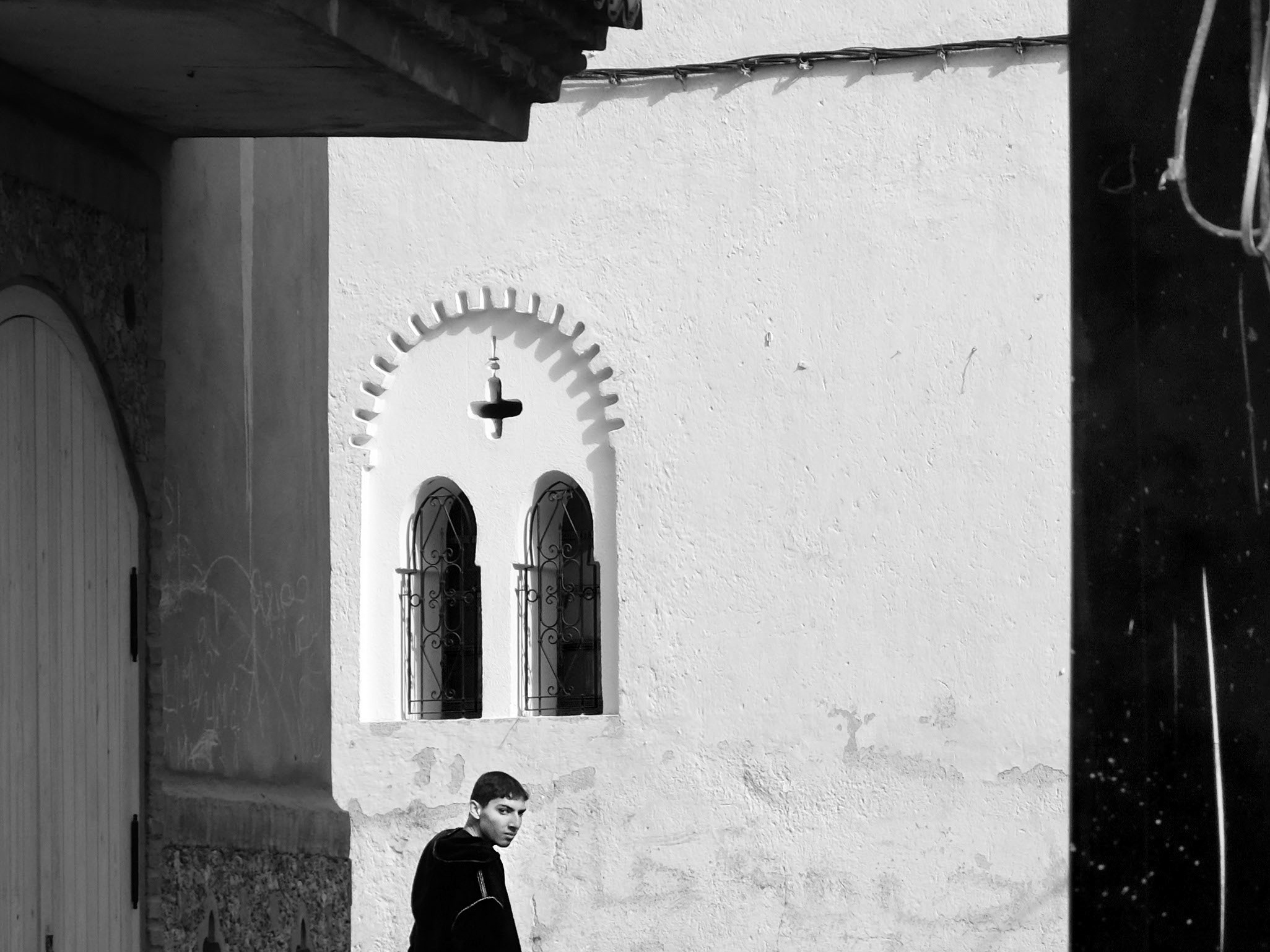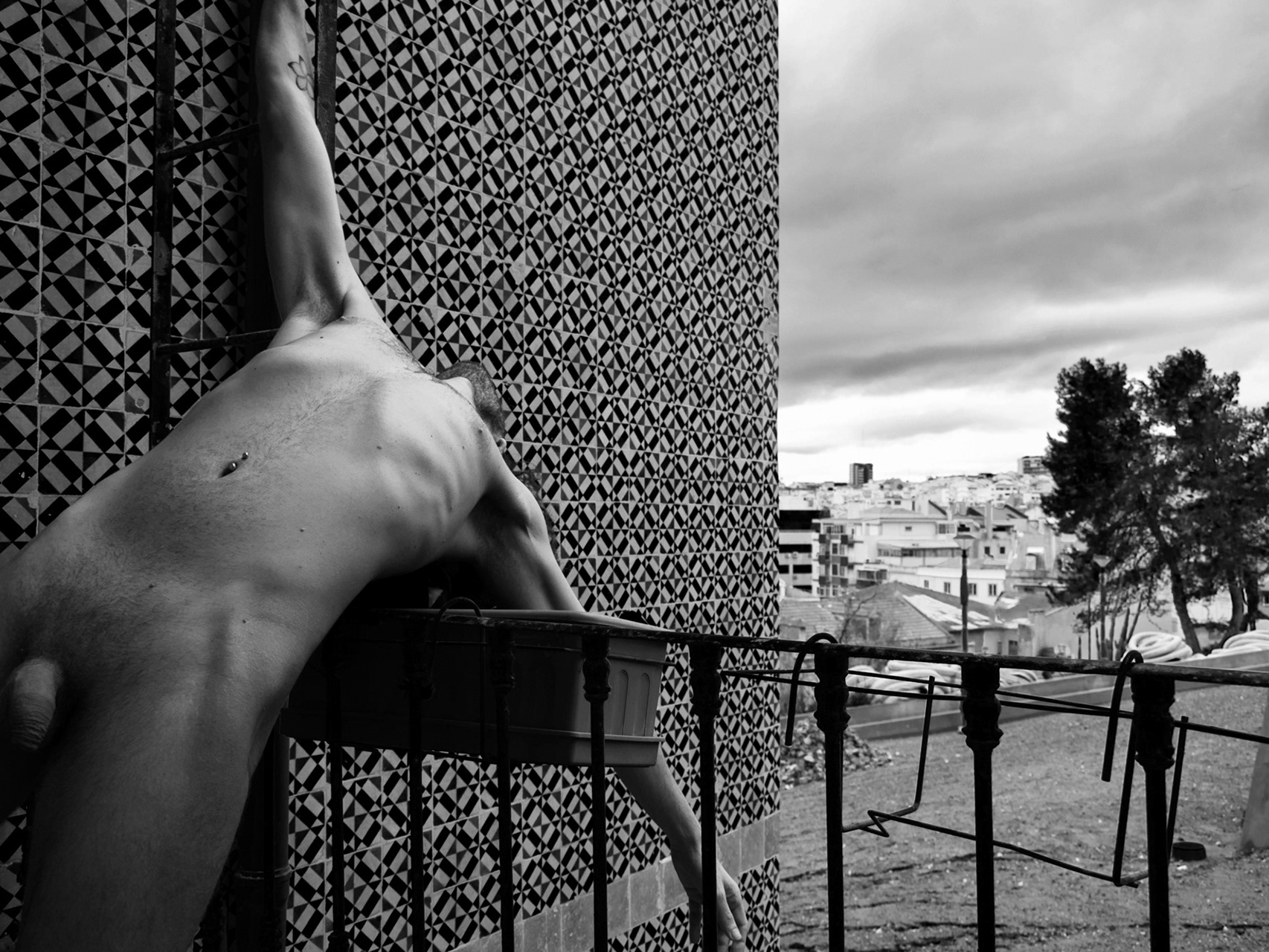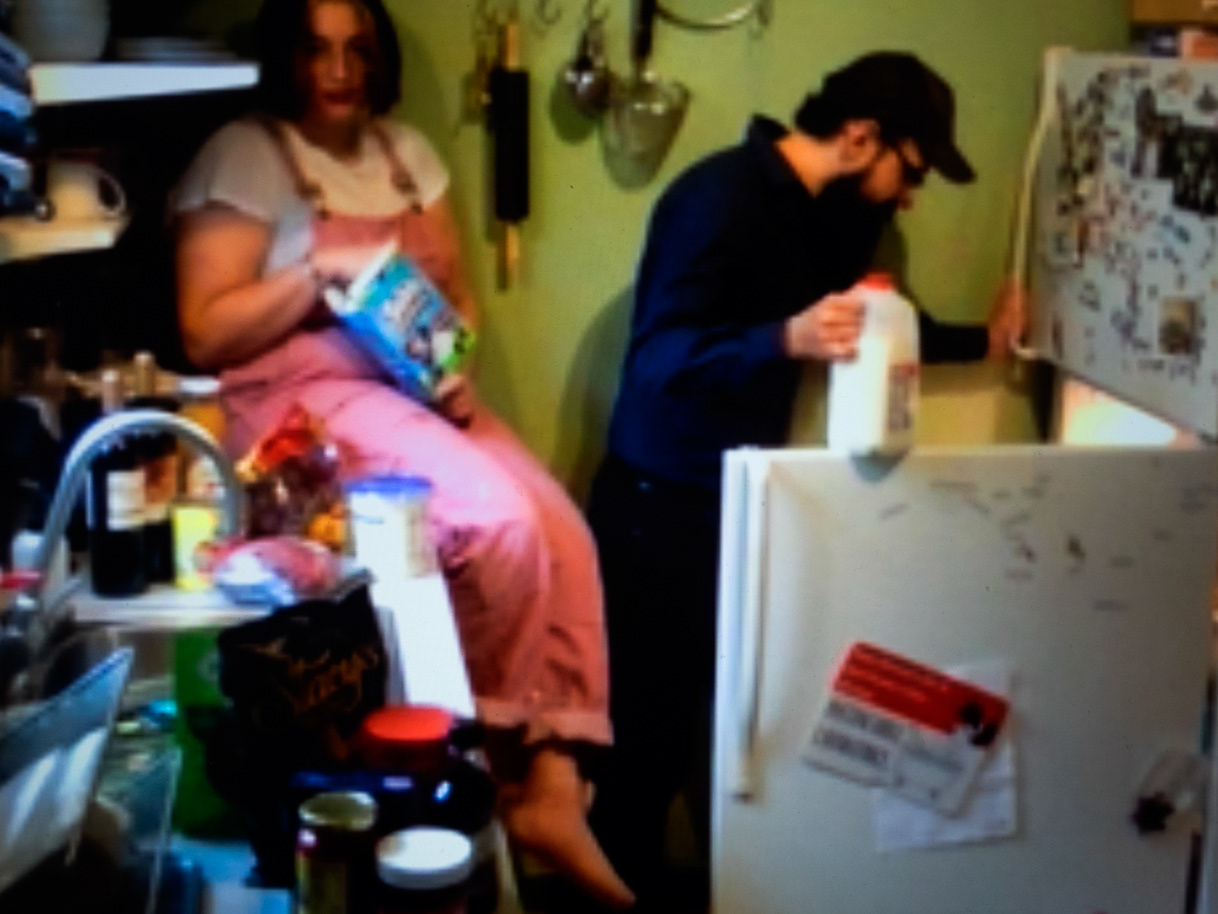I meet Darlina for the first time at La Chispa, a cultural house home for artists and people that fight for peace and social justice in Medellín and in Colombia. She is making breakfast together with Arlenis, her sister. Black coffee, arepas and huevos pericos. I glance at her half-closed, languid eyes that reflect the echos of past lives, yet I’m intrigued by a mysterious sense of vigour that both radiate and that pervade the kitchen. Who are they? Where do they come from? They speak to me in a close Spanish, I hardly understand what they say. They’re in Medellín to record their first demo and they’re also invited to a broadcast to talk about Eloa, their mother, the queen of Bullerengue.
Darlina and Arlenis are cantaoras de bullerengue. I’ve never heard of it before. On the following three days they let me follow their steps throughout their impressively tight schedule. I follow them to the recording studio, I get to know their story and I participate to my first rueda. I become aware that the two sisters are recognised within the community as veterans and maestras, daughters of the great Eloisa Garcés.
I soon find out that bullerengue is much more than a musical genre or a dance. I feel that la rueda - what they call the popular manifestation of this ancestral practice - cherishes the power of a cultural heritage that carries out the history of a daily revolution and of a never-ending resistance, kept alive on the Southern Caribbean coast of Colombia. Indeed, bullerengue arises around the palenques, the fortified villages built by the slaves that escaped from the plantations in the pursuit of freedom. Here, particularly in the region of Urabá and in the departments of Cordoba and Bolivar, the afro descendants cimarrones found shelter and preserved their costumes and traditions.
What immediately sparks my interest is the centrality of women around this practice. Later on, along the weeks spent in a small village of the municipality of Necoclí, in the region of Urabá, Darlina tells me that originally pregnant women, unmarried girls and concubines, not being allowed to participate to popular dances during religious celebrations, were coming together in the patio of the house. The beat of the drum and the hand clapping called the cantaora who would, in turn, improvise a verse and the other women answered in chorus. The time and place of the meetings were disclosed secretly within the women members of the same group of bullerengueras. Ever since I am told this story I can’t stop thinking about those women that, breathing life into this ritual, claimed their own space within a community that, in turn, reclaimed their right to exist. Besides being one of the few feminine chants of Colombia, the roots of bullerengue lie on a practice of feminine camaraderie that open the doors to the imaginary of the maternal womb, fertility and maternity.
The ancestral value of this practice dwells in the sense of belonging that leads to feel, vibe and express this feeling of freedom that prevailed over fear. We talk about a ritual that can’t be taught but only learned, daily. Verses, rhythms and moves are “captured” in every sharing moment and in the rueda. They are passed on and cherished in their spiritual entity. It goes without saying. Bullerengue is not simply a musical genre nor a dance because into it is preserved the very essence of these people identity - where for identity is intended the mutual recognition, the sharing of the memory of a common past as well as the gratitude for a land that embraces and protects.
One day Eloa fells seriously ill and Darlina is ready to face her destiny, the one of taking over in the group Palmeras de Urabá. Since then, she’ll never stop singing. Nor will she stop repeating her mother’s words when before dying she told her: “usted sabe que usted nació con eso, y eso lo lleva usted en el sangre, por medio de sus abuelos y sus ancestros”.
Darlina carries this 'Herencia bonita', as she calls it, under her skin. Every time she sings a verse, her voice, like the roar of a tiger, crosses mysterious temporal dimensions and goes straight to the heart. The first time I listen to her I feel the bones of my whole body disintegrate in an instant, and in that very instant I understand the magic of the ancestral gift. My bones would only reassemble after several days.
The story of Darlina and Arlenis moves through resilience and struggle. Resilience against a war that appears to have no end, Struggle against hunger, and, still today, against invisibilisation. Social institutions that most frequently promote exclusively models and knowledges imposed by the west. This is the reason that, today more than ever, forces us to reflect on the urgency of a reversal of values aimed at reclaiming cultures such as the bullerengue in the world.
These photographs reflect intimate moments experienced as a guest at Darlina's home during the period, extremely cathartic for them, leading up to the National Bullerengue Festival of Necoclì 2023. In fact, this occasion is one of the few that allows them to receive an economic income that is fundamental for the sustenance of the entire family. And it was to the latter that I turned my gaze; to bonds, motherhood, places and the form that ancestral memory takes in this culture in which the past, present and future meet and coexist in the repetition of gestures, words and customs.
Faced with the constant threat of vanishing into the void of what is forgotten, the community of Bullerengue refuses to disappear, turning this heritage into a practice of daily revolution.
Sol Marena Lloreda, Necoclí, Antioquia, Colombia
Bullerengueras, Necoclí, Antioquia, Colombia
La Cota, Urabá Region, Necoclí, Antioquia, Colombia
Leysi y Luis Angel, Necoclí, Antioquia, Colombia
'No Quiero Ser Un Capitulo En Tu Vida, Quiero Ser Tu Historia’
Yulissa, Parque de Necoclí
Un Ramo Que Resiste
El Sueno De Jose
Díptico
Darlina Saenz, Necoclí, Antioquia, Colombia
Yandri Paola Agamez y su hijo, Parque de Necoclí
Madre e Hija
Darlina y Arlenis en la floresta
Vida Cotidiana
Reflejo En La Pantalla Y Huellas
Daniel Caicedo y Luis Javier Agamez
La Rueda
Linda
Sol Cortando Tomates
Maternidad
Agua Bendita, Necoclí
Logan Andres Comiendo Azúcar
La Ganancia



